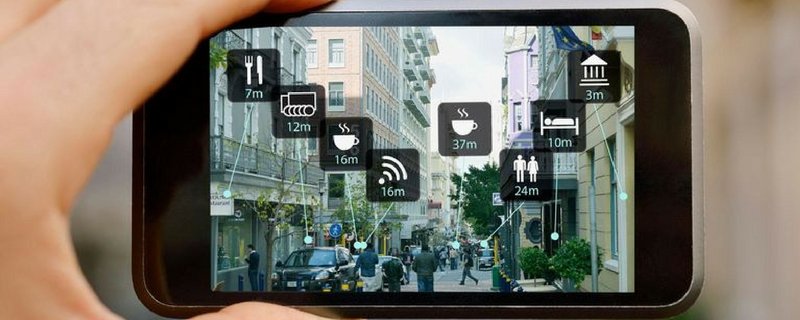Singapore has cemented its status as the global hub for trade and commerce. Numerous business opportunities are emerging in one of Asia’s strongest technology-enabled economies, with a whole new realm of opportunities opening up for hi-tech companies in this region. If you are keen on pursuing the latest business trends and want to establish a scalable business of your own, check out these seven business sectors that are growing exponentially.
Related Article: 5 reasons to start a business in Singapore
Digitisation and AI

Around the world, businesses are rapidly evolving their traditional models and moving into digitisation and artificial intelligence (AI). Digitisation enables accelerated market penetration, better consumer services, higher productivity with less expense and greater collection of intelligence through big data analytics. Among Southeast Asian countries, the growing dependency on digital technology translates to greater opportunities to create customised products and services for the respective local markets. Digitisation is projected to generate an economic impact of 625 billion Singapore dollars by 2030 as the city-state has a strong and reliable ICT infrastructure as well as a pool of leading IT companies.
An estimated 50 million jobs in Singapore could be transformed by AI, even as it continues to create new jobs. Asia’s first collaborative work space for AI called “The Carrot Patch” will be launched in November to foster the most brilliant minds in the industry. AI research and development will be its main focus; it even comes with a hot desk for freelancers, work spaces for small teams and private offices for businesses. By creating and nurturing AI-based solution providers, it hopes to improve user experience and simplify activities in different industries.
The National Research Foundation (NRF) will also be investing S$150 million into boosting artificial intelligence capabilities. The initiative, called AI.SG, will work in partnership with AI start-ups and companies developing AI products to create new tools and develop talent in the area. For those who are new to the field, there are conferences like AI for Enterprise Asia 2017, which will give deeper insights. If you have an innovative business idea in AI, you can scale it up to mould it into a technology giant in the coming years.
Read More » The 2014 Top Industries in Singapore
Niche e-commerce

E-commerce is now stabilising into a mature market in Singapore as today’s consumers possess advanced internet accessibility. Statistics show that Singapore’s ecommerce market revenue is expected to grow at 11.2% per year, reaching US$5.086 billion by 2021. Many start-ups are moving online to reach out to consumers who are connected to the internet 24/7. If you can identify the right niche market for your business, it can potentially be a gold mine. Some of the popular e-commerce sites that have established themselves include Carousell for quick buying and selling, Lazada for everything in consumer durables ranging from home appliances to fashion wear, Reebonz for luxury items, HipVan for home accessories and Zalora for fashion e-commerce. Once you have an idea, zoom in on your area of interest, fix your USP and delve a little into how to start an online business. Do the initial research analysis and planning to start your business. The next step is to incorporate your business as a private limited company.
For a successful online business, establish yourself as an authority in that particular segment by identifying niche target groups and their needs. Blogshops are an extremely popular option for entrepreneurs, from where they can kick-start their businesses. Popular products in the Singapore e-commerce industry are computer hardware and software, consumer electronics, books, music, games, fashion accessories and apparel and beauty and health products. However, when you start an e-commerce website, ensure you have enough inventory, flexible payment methods, and the necessary infrastructure including IT infrastructure, staff and business processes for smooth running of operations. Website marketing and advertising is important to drive target audience to your site, so make sure you invest a little time and money into that. Pay due attention to the rules and regulations for starting online businesses along with copyright laws and other frameworks set in place. Once you get the ball rolling, e-commerce is very rewarding.
Eldercare/ Care for Pioneer Generation

Singapore has evolved into a rich, developed economy over the last few decades. Remarkable advancements have been made in the field of healthcare, and Singaporean men and women are expected to live to a ripe old age of 80-90. It is expected that by 2030, one in 5 Singaporeans will be 65 years or older. This translates to higher demand for healthcare services and care for the aged.
The Singapore Programme for Integrated Care for the Elderly (SPICE) combines public and private support to run rehabilitation and day-care centres. Still, there is a growing need for compassionate communities, where the elders can spend their time in instead of nursing homes. There is an increasing demand for short-term and long-term integrated day care facilities, and programs for patients with specific needs.
As of now there are only 17 home care providers supporting some 5, 000 patients along with day care centres in Singapore. The Ministry of Health (MOH) along with Agency for Integrated Care have introduced programmes as well as guidelines to enable holistic and safe healthcare services for elders. Fitness and health-related services, personal shopping and running errands, and employment agencies to help them ease into the workforce are areas which need support and innovation.
Once you have a product or service in mind, look for the necessary funding. You can consider participating in the DBS-NUS Social Venture Challenge Asia, a competition to identify unique social venture ideas. They also conduct workshops, provide capital and help build networks with mentors. Other organisations that will help with ideation and funding are National Volunteer and Philanthropy Centre.
Education and Training

Education is a fast-growing business sector in Singapore and SMEs have more opportunities than ever in the field. There are demands for pre-school education for children, training for working professionals and vocational training for youngsters at diploma, degree, and post-graduate levels. You can capitalise on the growth in the education market by becoming a franchisee of a larger business that is into educating children or adults. The Singapore government’s SkillsFuture Initiative provides citizens with $500 worth of credit which can be used for continued professional training. The government has also invested $1billion into continuing education training until 2020. The demand for learning centres is very high – if you are a business innovator, cater to this niche and you might just find yourself serving the larger society while earning good money.
Mentorship on Entrepreneurship

If you have years of experience running a business in Southeast Asia, here is a chance for you to mentor young entrepreneurs. Share your knowledge, build the skills of your mentees and help them grow their business. New entrepreneurs are signing up for mentorship programs that will teach them how to sell a product, develop a business plan, and the basics of marketing. You can help with solving business problems or dive deeper into domain-specific issues. Mentors can guide entrepreneurs on the various aspects of business including supply chain management, financial technology, cybersecurity, data analytics and so on. Helping to build a scalable business will allow you to utilise your business acumen. If you think you have it in you, start a mentorship program or even run an accelerator, the latter of which you can register as an Accredited Mentor Partner under the Startup SG Founder Scheme.
Cybersecurity

In its quest to become a Smart Nation, Singapore is eager to enhance its cybersecurity. A National Cybersecurity Strategy has been put forth to enhance its position as a global digital hub. The Nanyang Technological University of Singapore (NTU) has a S$ 2.5 million collaboration with BAE systems, a defence, aerospace and security solutions, to develop advanced cybersecurity solutions. They are also focussed on equipping specialists in the field. There is also the Cyber Security Associates and Technologists (CSAT) programme to equip ICT professionals to change their sector.
It is becoming increasingly important to secure both information and operational technology systems as everything is digitised and uber-connected. Cybersecurity is the only way to ensure that power grids, healthcare systems, military information and transport systems are safe as infiltration and attacks move online. But there is also a need to provide cyber security products for the masses and it is a niche that is yet to be tapped into.
To get into the field basic knowledge in computing, algorithms, coding, and technology is important. If you have the IT skills and foresight in fighting cybercrime, this might be the area for you to invest in a business.
Read More » Singapore as the Digital Capital of Asia
Augmented Reality/ Virtual Reality (VR)

Augmented Reality is the next big thing in digital technology, set to revolutionise the way we work and play. Microsoft Hololens and Google Glass are some of the forerunners in VR. Singapore is taking the lead in VR entertainment with big plans to become one of Asia’s key hubs in the area. Both VR and AR are increasingly used in different sectors, especially by media giants. Local firms are achieving stunning results by using VR technology and if you are a pro in the field, you can get in on this digital revolution. It opens up a whole new realm of opportunities in marketing as well, with numerous brands relying on AR to create new experiences for their customers. Some other fields that will benefit from VR include interior design, construction, education and flight simulation. Hi-tech companies should get in on this exciting digital niche and avoid falling behind.
The Infocomm Media Development Authority (IMDA) is encouraging entrepreneurs by facilitating more collaborations and supporting growth and development of skills in the field. Whether it is for training or as a marketing tool, VR technology is making a lot of inroads. The travel industry can make use of it by introducing products, places, and experiences through 360-degree videos. Even hotels and properties can use the same technology to take their product to the audience.
VR involves use of audio and video to create a life-like 3D environment and a VR headset costs less than S$300 a pair. Hence, it is easier than ever to introduce it into your business or to set up a startup that offers such technology to other businesses.
Related Article: 13 startup schemes and grants in Singapore
Whichever business you choose, make sure it is a right fit for you and the market that you cater to. All businesses have their ups and downs, so you must plan to be a long-term player and a sustainable business through the market volatility. There are also numerous startup schemes and grants available in Singapore to give you the funding boost you might require. Remember the Confucius quote – “Choose a job you love, and you will never have to work a day in your life.”
Related Reading » Singapore Company Registration Guide
Bank on these business trends and form a company in Singapore with speed, ease and value
An hour is all we need. Coupled with transparent, highly-competitive pricing and timely, committed support, your company registration is made easy.





